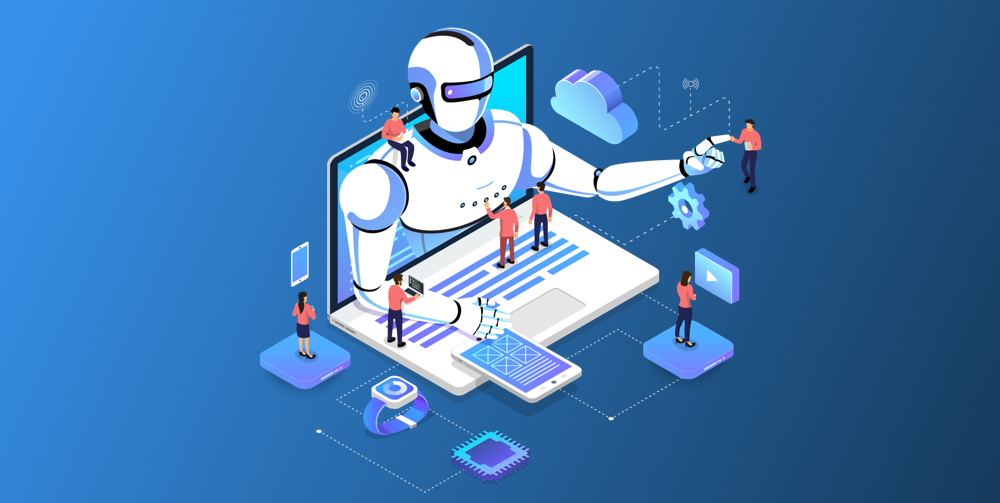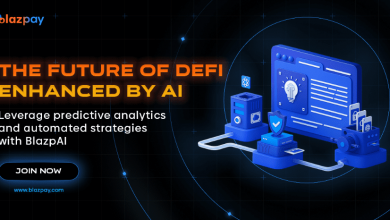Real-World Applications of AI: Transforming Our Daily Lives

Artificial Intelligence (AI) is no longer a futuristic concept limited to science fiction—it’s already here, powering many aspects of our daily lives. From virtual assistants to complex medical diagnostics, AI is making significant strides across a wide range of industries. This article explores some of the most impactful real-world applications of AI and highlights how it is reshaping everything from communication to commerce.
1. Healthcare Innovations Through AI
AI has become a critical asset in the healthcare industry. Algorithms trained on vast medical datasets can now detect diseases with high accuracy. For instance, AI-powered diagnostic tools are being used to identify early signs of cancer, heart disease, and even neurological conditions. Additionally, AI assists in drug discovery and predicting patient outcomes, helping doctors create personalized treatment plans.
2. AI in Customer Service and Virtual Assistants
Chatbots and virtual assistants like Siri, Alexa, and Google Assistant use natural language processing (NLP) and machine learning to understand user queries and respond intelligently. Businesses also implement AI-driven customer service bots to handle routine inquiries, provide 24/7 support, and enhance customer satisfaction.
3. AI in Personal Relationships and Companionship
A fascinating and emerging real-world application of AI is in the realm of digital companionship. Many people are now exploring the emotional support provided by intelligent chatbots, including the use of an AI girlfriend app. These apps offer highly customizable, interactive virtual characters that can hold conversations, remember preferences, and even adapt to users’ emotional needs. This application of AI taps into loneliness and mental wellness, offering companionship in a unique and tech-driven way.
4. Autonomous Vehicles and Smart Transportation
AI is at the heart of the self-driving car revolution. Companies like Tesla, Waymo, and Uber use AI to process real-time data from sensors, cameras, and GPS systems to make driving decisions. Beyond cars, AI is improving traffic management systems, enhancing safety, and optimizing public transportation networks.
5. AI in Finance and Fraud Detection
Financial institutions use AI to detect unusual patterns in transactions that may indicate fraud. AI algorithms also power robo-advisors, which analyze market trends to help individuals make investment decisions. From credit scoring to automated trading systems, AI has become a powerful tool in the financial sector.
6. AI in Manufacturing and Industry 4.0
In manufacturing, AI is enabling predictive maintenance, reducing downtime, and improving quality control. Smart factories use AI-driven robotics for assembly, packaging, and even quality inspections. The integration of AI in industrial processes increases productivity and minimizes human error.
7. Education and Personalized Learning
AI is revolutionizing the education sector by offering personalized learning experiences. Intelligent tutoring systems assess a student’s strengths and weaknesses and adapt the curriculum accordingly. Language learning apps and online courses often leverage AI to provide real-time feedback and customize content based on user behavior.
8. Retail and E-Commerce
Online shopping has been significantly enhanced by AI. Retailers use AI to recommend products, forecast demand, and manage inventory. AI also helps personalize marketing efforts, targeting customers with tailored advertisements based on browsing history and preferences.
9. Agriculture and Precision Farming
AI applications in agriculture are helping farmers monitor crop health, optimize irrigation, and predict yields. Drones and sensors gather data, which AI analyzes to provide actionable insights. This results in increased efficiency, reduced waste, and sustainable farming practices.
10. AI in Security and Surveillance
Surveillance systems powered by AI can recognize faces, detect suspicious behavior, and send alerts in real time. Governments and businesses alike use these systems to enhance public safety and prevent criminal activities. AI is also instrumental in cybersecurity, helping detect malware and unauthorized access attempts.
Conclusion: AI’s Expanding Horizons
AI continues to expand its reach into more areas of life, offering solutions that are smarter, faster, and more personalized. Whether you’re interacting with a chatbot, exploring the possibilities of an AI girlfriend app, or relying on AI for accurate medical diagnosis, it’s clear that artificial intelligence is not just a trend—it’s a transformative force.
As AI technology advances, ethical considerations and responsible development will be crucial to ensure its benefits are equitably distributed. Nevertheless, the real-world applications of AI already show immense promise for improving lives and reshaping the future.



